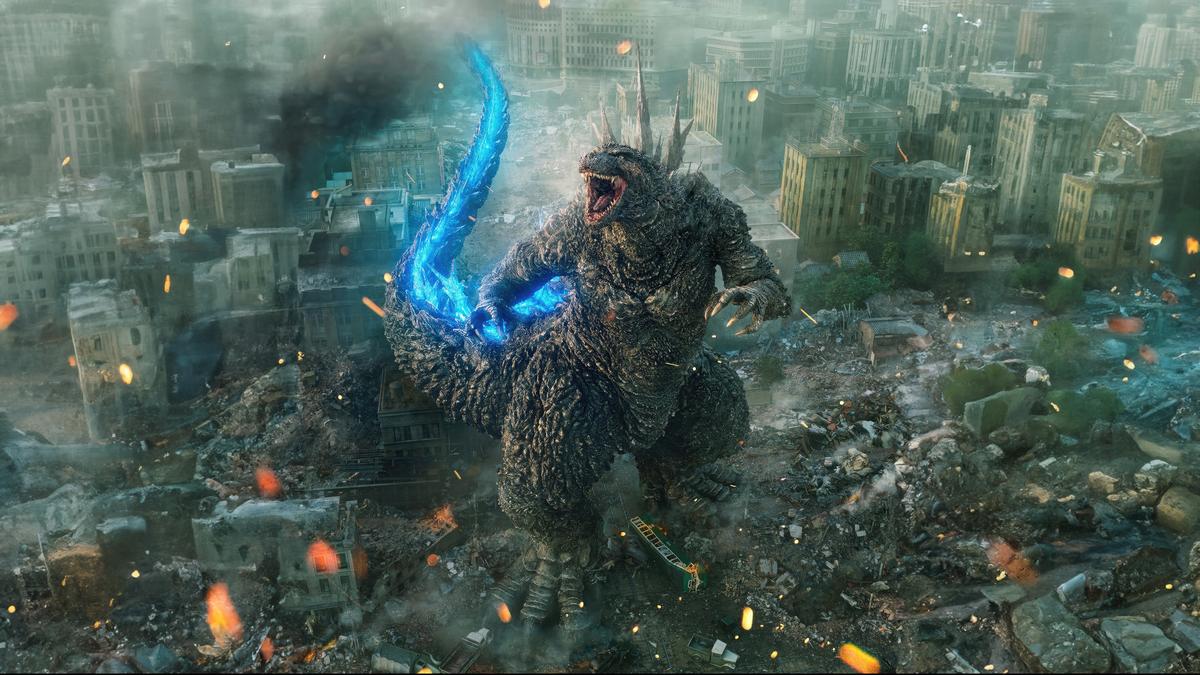
‘Godzilla: Minus One’ movie review: Takashi Yamazaki’s glorious modern-day monsterpiece
The Hindu
Takashi Yamazaki's Godzilla film explores survivor's guilt and historical reckoning, blending spectacle with deep themes. Behold its glory.
Takashi Yamazaki’s latest Oscar-winning entry in the storied Godzilla franchise reclaims the beloved kaiju’s roots, melding an awe-inspiring spectacle with a potent exploration of survivor’s guilt. It’s a historical reckoning that would make even the most jaded kaiju cynic sit up and take notice. Behold, its glory. It’s finally here.
Godzilla has been through quite the career since its 1954 debut with Ishiro Honda’s first-of-its-kind monster flick, morphing from a symbol of nuclear horror into a sometimes hero, sometimes villain, and always a box office draw. But in Minus One, Yamazaki strips away dear ‘ol Gojira’s past ‘iguanification’ and subsequent pink-washing, returning our favourite radioactive reptile to ground zero: steeped in the anxieties of post-war Japan and a scathing critique of American imperialism. If we were fooled into believing that an atomic dinosaur couldn’t possibly get any more terrifying, here, for the first time in 70 years, Gojira serves as a colossal, scaly therapist of sorts, forcing Japan to confront its darkest hours and some uncomfortable questions (a true 21st century nightmare).
The film opens in the immediate aftermath of World War II when Japan is counting its losses and reeling from the aftereffects of the war. The story follows Kōichi Shikishima (played with gut-wrenching vulnerability by Ryunosuke Kamiki), a man plagued by survivor’s guilt, wandering through the rubble of his homeland, and haunted by the spectre of his past deeds...or misdeeds. His journey, which could very well have continued as a solo sob story, instead intersects with Noriko (Minami Hamabe) and an orphaned child. This unlikely trio forms a makeshift family, symbolizing the fragile hope of a nation trying to rebuild from the ground up.
Yamazaki uses this human drama to anchor the film’s larger themes — a historically tried and tested formula for success when crafting compelling kaiju flicks. Kōichi’s struggle is not merely with a monstrous Godzilla but with the remnants of a militant nationalist ideology that glorified sacrifice and heroism at the cost of individual lives. Where the iconic behemoth had previously served as a sharp allegory for the devastating aftermath of nuclear warfare, Minus One mixes it up a little as a metaphor for the destructive force of jingoism and the heavy burden of survivor’s guilt. The film’s brilliance lies in its ability to weave these psychological threads into the fabric of a blockbuster, giving us characters who are as compelling as the monster that threatens them.
The narrative doesn’t shy away from firing a few rounds of atomic breath at the Truman-are nuclear proliferation either. The reawakening of Godzilla, fueled by the infamous Bikini Atoll nuclear tests, is a not-so-subtle jab at the lingering presence of American military power and its catastrophic consequences. Yet, Yamazaki is too clever to descend into didacticism. Instead, he employs the giant lizard as a means to explore Japan’s fraught relationship with its own history, presenting a revisionist take that is provocative, perceptive and poignant.
But let’s not get too bogged down in the heavy stuff. After all, this is a Godzilla movie, and Yamazaki spectacularly delivers the goods. The kaiju himself is a marvel, rendered with a tremendous amalgamation of CGI and practical effects that pay homage to the creature’s Tokusatsu incarnations.
When Godzilla rises from the depths, its glowing spines cutting through the ocean’s surface, it’s a sight to behold — both terrifying and beautiful. When Godzilla stomps through the city, the ground shakes, buildings crumble, and the camera captures it all with a mix of fluid dynamism and brutal clarity. It’s as if the screen can barely contain the kaiju’s indomitable intensity. This new Godzilla may be dwarfed in size by the likes of Legendary’s take on the King of the Monsters, but what it lacks in size, it more than makes up for as a horrifying force of nature, with nothing but malice in its eyes; its looming presence rendered with a tactile realism makes Godzilla more menacing than ever before.













